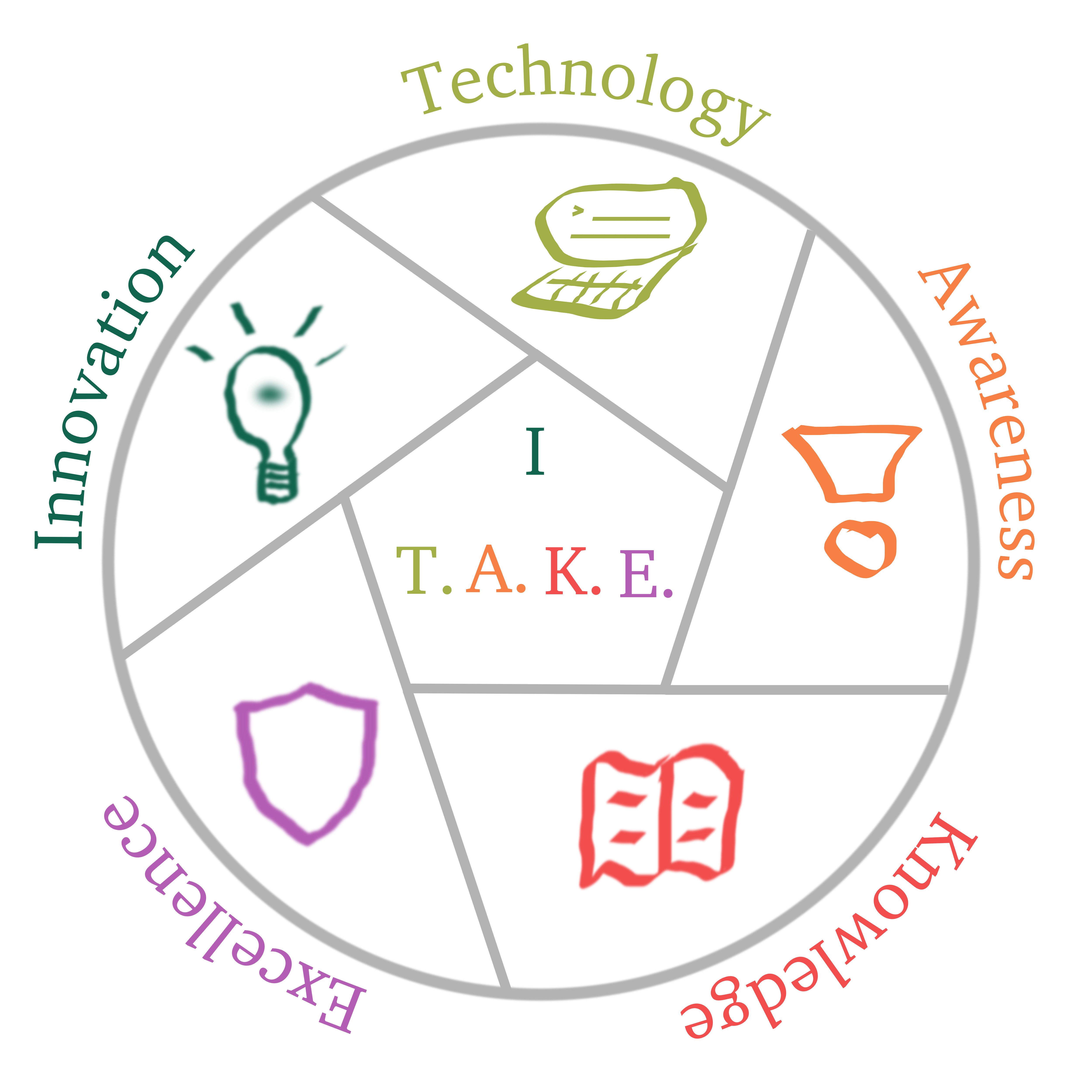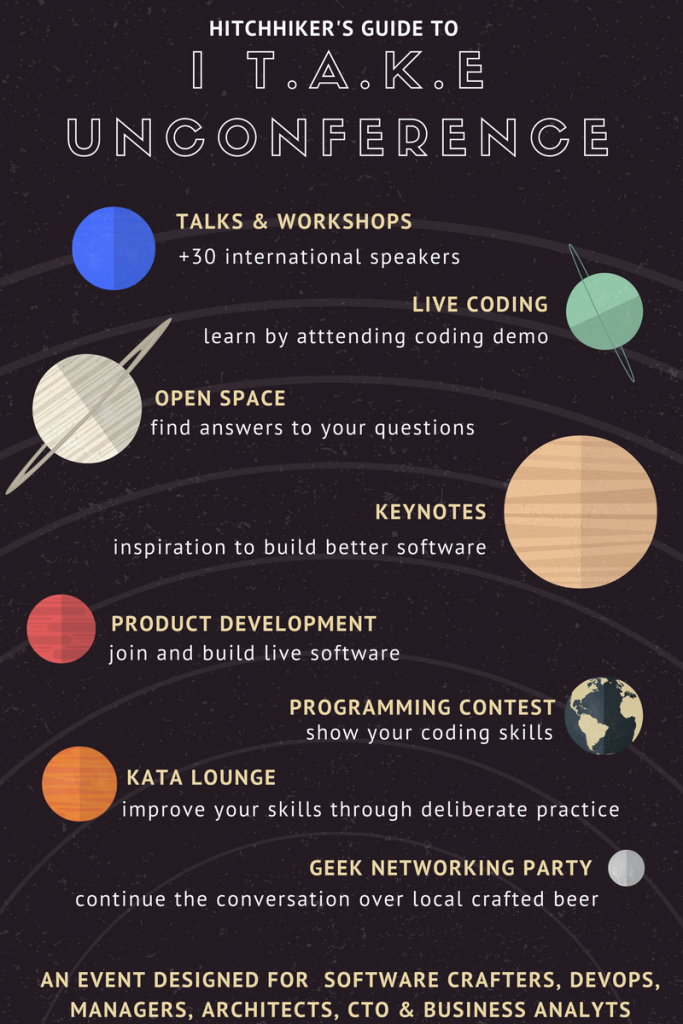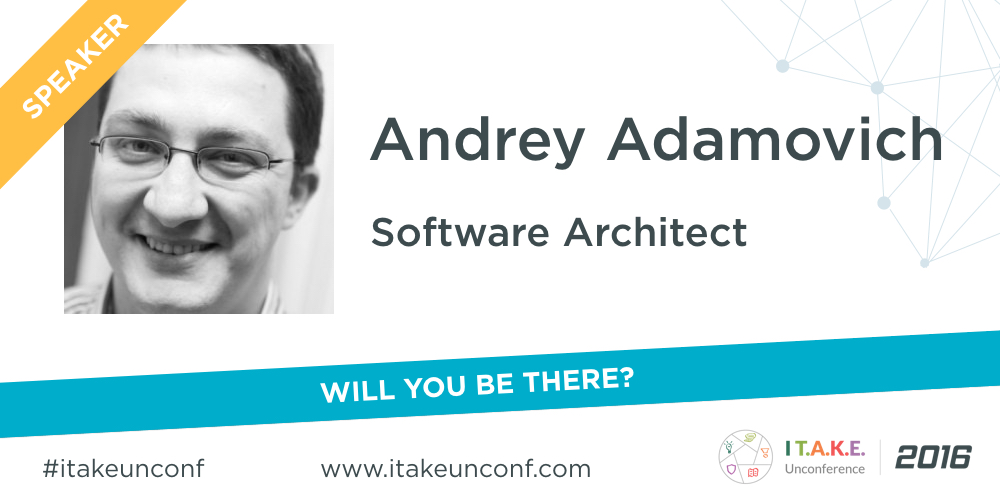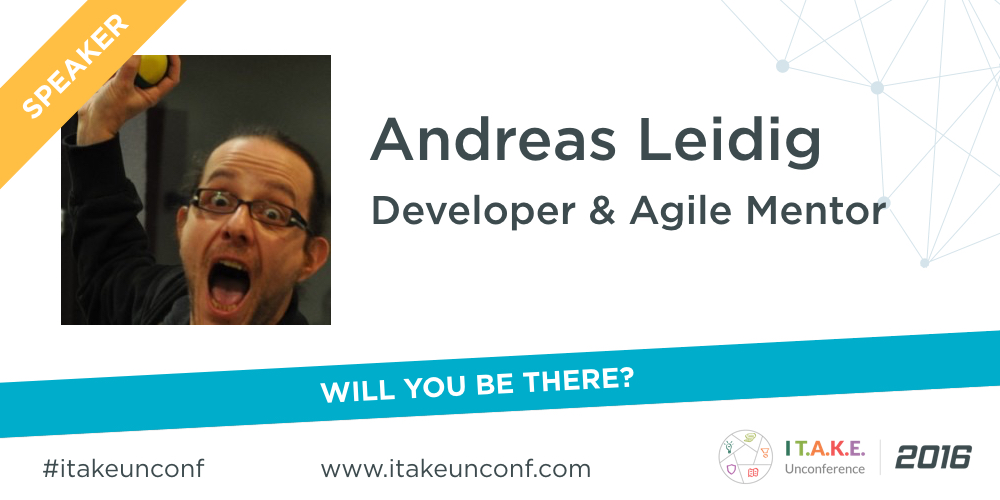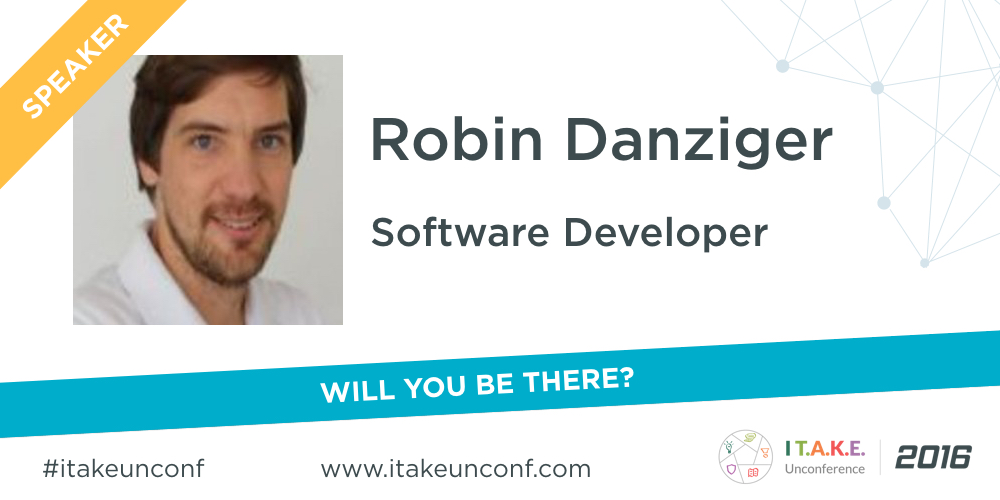
Ready, steady, go – I T.A.K.E Unconference, 5th edition will take place in the rising tech city of Bucharest, 11-12 May, 2017!
Code. Craft. Learn. Share. Repeat.
The growing community of top-notch software crafters is raising the bar in the tech industry. The speakers and participants are challenging the current practices, making experiments and trying new techniques.
The intense, dynamic program is including multiple tracks of practical, hands-on sessions, strong case studies, and personal experiences, delivered in an attractive manner.
While we are working on selecting the best proposals from 15 countries, here’s what you can do to save your seat at the best price:
Wondering what to expect from 2017 edition? This is just a preview:
